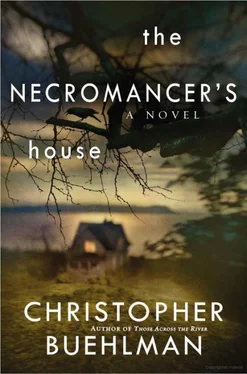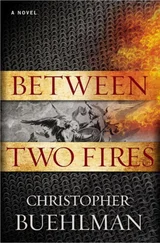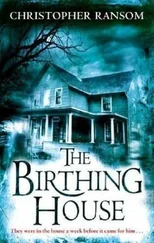Offers of Witness literature are countered with offers of Buddhist, Taoist, or Confucian books.
Mutual refusal.
“Or, if you want to come back another time, I’ve got a reference library that might really interest you.”
He directs this at Marcus, trying not to sound creepy, and failing.
When Salvador brings Andrew French-press coffee, the young man goes gray, looks at Arthur, watches Arthur nod at the servant, and doesn’t understand why Arthur isn’t shitting himself, too.
That’s because Arthur sees a young Spanish man who bears a slight resemblance to John Leguizamo. You, on the other hand, see the false human form flicker from time to time, and that’s when you see the lacquered branches that make his radius and ulna, the awkward but delicate way his artist’s-model articulated hands pluck a spoon from the tray or press down the plunger of the coffee press. You glimpse the steam wafting over the portrait. You see ghosts, too, and hear voices. You think you’re crazy sometimes and sometimes you think you’re possessed. But really you’re just awake.
How unlucky.
“I want to go, Uncle.”
Arthur raises an eyebrow at the boy, suggesting that a conversation about manners will take place on the drive back, but then he checks his watch, a big seventies-style Timex on a silver watchband.
Salvador offers them both coffee.
Arthur politely declines.
Half-turns his wrist to check his watch again.
Andrew realizes Arthur has no cell phone and loves him for it.
Marcus stares, suddenly peaceful, as though resigned to the mental breakdown he thinks he’s having.
“Well, I guess Mrs. Simpson will be bringing the car around soon, and we’d best not keep her waiting. Thank you for your hospitality, Mr. Blankenship.”
“Thank you for the conversation.”
All three men rise.
Salvador is standing between them and the front door, so Marcus steals for the side door leading from the kitchen.
“Oh, no!” Andrew says. “The stairs over there are dangerous. It’s better if you go out the way you came.”
Salvador moves aside, bowing slightly.
This is my house, and you must exit the same way you entered.
“Remember what I said about the library,” he tells Marcus. “It might explain things a bit.”
“Thank you,” Marcus says quietly, but he just wants out.
His eyes don’t meet Andrew’s again.
It is all he can do not to race ahead of his ponderous uncle, race down the wooded drive and into the heated SUV where Mrs. Simpson hums along with 1950s music on the radio and Jesus and the angels still hold fast against the devil’s wicked, confusing world.
Andrew lights the oil lamps on the big pine farm table that sits in the middle of his library while Salvador hovers near; the magus never lets the wicker man, whose wooden left hand is newer and paler than the right one, handle fire.
The servant writes on the Etch-a-Sketch around his neck, turning the knobs with his clever fingers, his wicker hips moving gently with the ghost of his wagging tail.
HELP?
“Wine,” Andrew says, and Salvador turns his portrait gaze toward the hall, starting off in that direction; then he seems to remember something important—he shudders, making a sound like a dry whimper and shaking his flat head. He clasps his hands in supplication and stares at Andrew now, still huskily whining.
“I know, boy. That was mean. I was just testing. Fizzy water will do.”
The automaton visibly relaxes and hurries out of the library. Andrew goes to the hanging shelf, a weathered blue bookcase suspended close to the high ceiling by belts, just out of reach, a baby doll with wild hair and no eyes hanging from a shoestring noose nailed to its bottom. An Indian-print blanket veils the volumes waiting within. Andrew stands close to the doll and says, “Hello, Sally. I declare myself to be Andrew Ranulf Blankenship, son of George Blankenship, grandson of Charles Thaddeus Blankenship, and I am the true owner of this house and these books.”
The doll kicks her feet now to start herself gently swinging. After three swings’ worth of momentum, she latches onto Andrew’s hair with one of her plastic hands. She feels his face with her other hand and, satisfied, kisses his cheek and goes inanimate again, swinging limply from the bottom of the shelf. The belts that hold the shelf loosen themselves now and it lowers so he can reach within. He pulls aside the curtain. The power drill that would have lashed out and blinded anyone but Andrew whirrs once to show it’s on duty. The drill sits on the bottom of two levels, next to a rubber cobra and a mummified fist wearing brass knuckles (this Hand of Glory doesn’t pick locks or light candles or stop hearts—it belonged to a Cossack pugilist hanged for beating his wife’s lover and that man’s two brothers to death). On the top level, nine identical-looking huge leather books lie stacked in threes, bindings out. The magus eases his fingers around the second book in the rightmost pile and slides it out from under its top neighbor, which lifts itself up obligingly. Each of the eight decoys holds a nasty surprise for anyone, Andrew included, who begins to pull it out; the book below the actual book, for example, contains several dozen dried, wormlike Amazonian parasites, normally river dwellers, that will slither under the clothes of any intruders and race for the urethra, fighting each other, if necessary, for the honor of burrowing within and affixing themselves in front of the bladder with backward-facing spines. Only a blessing from the shaman of a nearly extinct tribe administered in the actual Amazon would make the thing let go, but this has to happen within a week or the beast will catch fire. Not as immediate as the shotgun shells (once owned by Doc Holliday) that wait in book two, but any spell-caster (and who else would have gotten this far?) will have trouble concentrating on anything above the waist while the wigglers do their wiggly work.
He cradles the book and sets it on the table, now pulling a dictionary of Old Russian from a more ordinary shelf behind him, fetching a spiral notebook and pencils, and sitting down to read. Of the four books he brought home from forests near the Volga (each with its own shelf and booby traps), this is one of the two he understands least.
After The Book of Sorrows , that is.
But this one.
Of the Soul and Its Mutability and
How Best to Survive Death
He knows, as well, that it is the most precious book he owns, and that any magus who becomes aware of its existence will stop at nothing to get it. It is said that Rasputin was protected by some of the lesser spells held within, and that Koschey the Deathless mastered the whole thing before the crone extorted it from him in the time of the Tsar Alexander II.
So far, Andrew has come to understand parts of it but is afraid to try anything beyond a sort of dream-walking wherein he sends his consciousness, still well tethered to his sleeping body, to roam the beaches of the lake or through walls into the homes of his neighbors.
He gave this last bit up after observing his misanthropic survivalist neighbor John Dawes (across Willow Fork Road, binocular distance) drunkenly shaving his scrotum with a straight razor while watching a Gilligan’s Island rerun. The sight had so startled Andrew that he experienced a sort of spasm and suspects he nearly snapped his tether. He has seen nothing yet to convince him that an actual hell exists (or that it does not), but leaving his body comatose while his soul haunts the house of a lonely, gun-happy ball-shaver sounds close enough. Now he confines his experiments to beachcombing and low-altitude flight, never straying more than a mile or two away from himself; he intends to push himself further if he can understand how to get back into himself without the comforting astral umbilicus that anchors him. Getting back into your own body without it is the first step. Next and harder will be taking over another body, which is a fearful business that smacks of actual evil. Temporary possession is possible, but the language in Of the Soul warns that stuffing two souls in one body is draining to both: The original host might succeed in pushing you out and into death’s embrace; if not, the presence of multiple souls in one body attracts “other beings,”
Читать дальше












